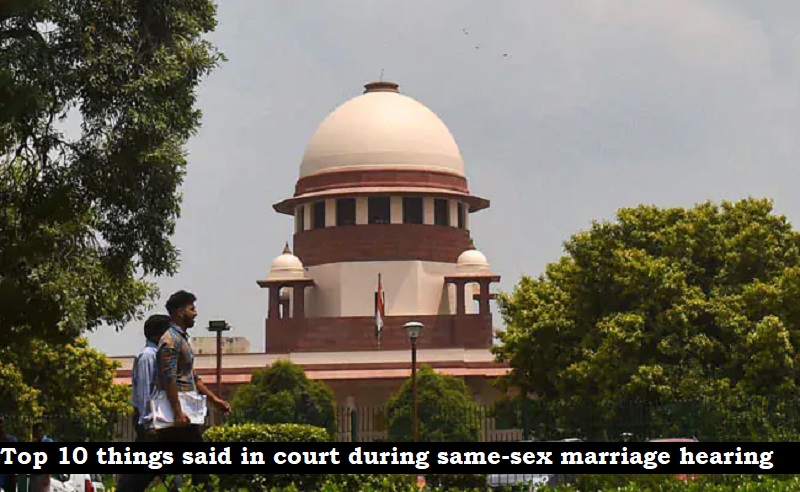
On Wednesday, the fifth day of several petitions, the Supreme Court heard arguments calling for marriage equality for non-heterosexual couples to be married and enjoy the same rights as heterosexual couples. The petitioners presented evidence in support of marriage equality, arguing for the right to equality and other issues, such as the importance of family. The government’s arguments were heard in the afternoon after they attempted to dismiss the petitioners’ demands last week as an ‘urban, elitist’ notion.
The round-up of all the arguments from today’s hearing are as follows:
- Solicitor General Tushar Mehta argued that the right to marry cannot compel the State to create a new definition of marriage. While parliament can do so, it’s not an absolute right. Mehta appealed to leave this subject to the choice of parliament instead of taking it further.
- Chief Justice DY Chandrachud stated that the elite argument can be set aside, as it’s a matter of prejudice and does not determine how the court will rule on a constitutional issue.
- Advocate Arundhati Katju argued that LGBTQ couples will come to the courts with claims on issues such as pensions and other benefits and obligations that flow from marriage, just as heterosexual couples have done since the codification of matrimonial laws began. They asked for the right to not be different.
- Advocate Nundy argued that the court should not presume any difficulties arising for LGBTQ couples. The union states such couples would play havoc with personal laws, but they are part of their community and society.
- Advocate Nundy also argued that LGBTQ couples should be blessed just like heterosexual couples, and it’s not an elite notion. They received calls from people in various places like Hissar, Chhattisgarh, and Surat. They asked for the union to bless them just like any other couple.
- Solicitor General Tushar Mehta argued that there is no absolute right to marry, as the law prescribes when to marry by prescribing age, who not to marry, and how to separate is also legislatively regulated.
- Advocate Amritananda Chakravorty argued that children and orphans have the right to have a family. Exclusion of same-gender couples and transgender persons defeats the very purpose of adoption, which is to provide a stable, loving family. They argued that petitioners are part of a historically oppressed minority and deserve as much dignity and protection as opposite-sex couples.
- Solicitor General Tushar Mehta argued that even the prayers of the petitioners are extremely vague. Societal acceptance is needed for recognition of a union, and this has to be through parliament. If it’s done by the court, it’s detrimental to the LGBTQI community since it forces something against the will of the people. Mehta argued that we cannot forget the historical background that led to the institution of marriage.
- Solicitor General Tushar Mehta argued that Parliament was aware of lesbian and gay people while constituting the Special Marriage Act. The select committee used the word ‘parties’ instead of ‘man’ and ‘woman.’ After a heated debate, an amendment was brought to introduce different ages for men and women.
- Chief Justice DY Chandrachud argued that the Special Marriage Act was intended to be religion-neutral, and the idea was to create a forum for people to marry outside their faith.

Post Your Comments